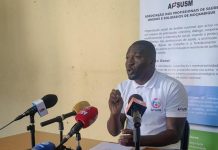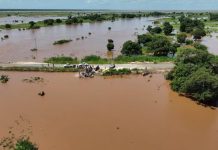Africa-Press – Mozambique. Law and security specialist Rodrigues Lapucheque believes that the Armed Defence Forces of Mozambique (FADM) should undertake uninterrupted actions to prevent the regrouping of armed groups operating in Cabo Delgado, northern Mozambique.
“Patrols will become indispensable and uninterrupted, both day and night, including searching the forests and probable hiding places, with the primary aim of preventing them from regrouping,” Lapucheque said.
This is his position in an opinion article published on Tuesday in Notícias, Mozambique’s main daily newspaper.
The government forces should continue to pursue the insurgents to entirely and definitively eradicate them and eliminate the risk of counter-attacks.
Rodrigues Lapucheque noted that the FADM must stop armed groups from occupying “dead spaces” on the border between Mozambique and Tanzania, from where they could launch counter-offensives.
On the other hand, he continued, the government forces have to be alert to the threat of the rebel activity spreading to other provinces, given the forced dispersion of the armed groups in the face of the joint offensive by the Mozambican Defence and Security Forces (FDS) and military contingents from Rwanda and the Southern African Development Community (SADC).
He recalled the spreading of the 16-year civil war between the government of the Mozambique Liberation Front (Frelimo) and the Mozambican National Resistance (Renamo), the main opposition party, which ended in 1992.
This conflict, he explained, began timidly in Sofala province and then slowly spread to Manica province and throughout the country.
Rodrigues Lapuche said maintaining the pursuit of the insurgents until their annihilation would be a complex and delicate operation and require efforts and sacrifices.
“It also requires increased logistical reinforcement, especially in food supplies, uniforms, first-aid medicines, ammunition, oils and lubricants, both for the vehicles involved in the operations and their respective periodic technical maintenance, as well as their timely repair,” Lapucheque said.
The FDS action in combating terrorist groups should also include military intelligence services to collect data on the movements and activities of insurgents.
“It is equally essential to count on the active collaboration of the local populations, a work that is successfully achieved by knowing and meeting their basic economic-financial, social and cultural needs,” he noted.
The military official noted that the war in Cabo Delgado shows that the armed groups have taken advantage of poverty to entice the local populations and recruit young people into their ranks.
Lapucheque is a colonel in Motorised Infantry from the General José Maceo y Grajales Military Academy in Santiago de Cuba, has a doctorate in Law and Security from the New University of Lisbon and is a university lecturer.
Cabo Delgado is a natural gas-rich province, terrorised since 2017 by armed rebels, with some attacks claimed by the extremist group Islamic State.
The conflict has led to more than 3,100 deaths, according to the ACLED conflict registration project, and more than 817,000 displaced people, according to Mozambican authorities.






